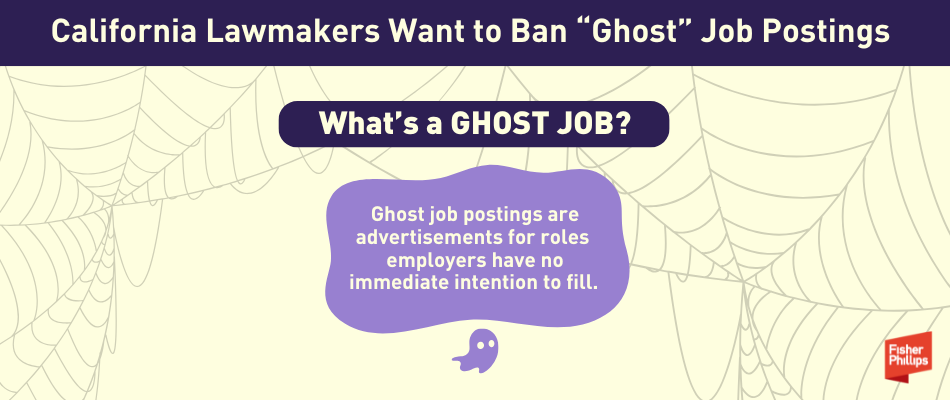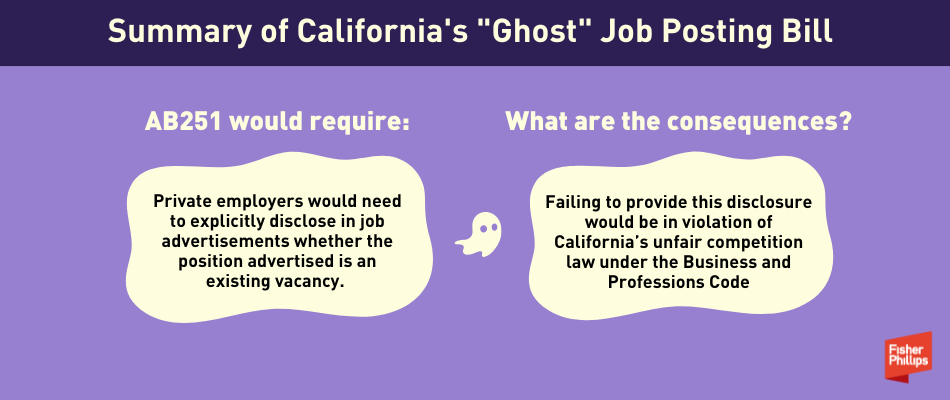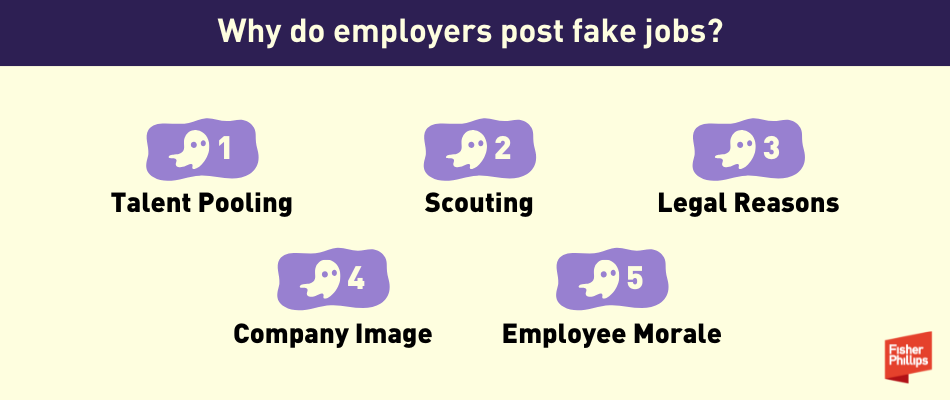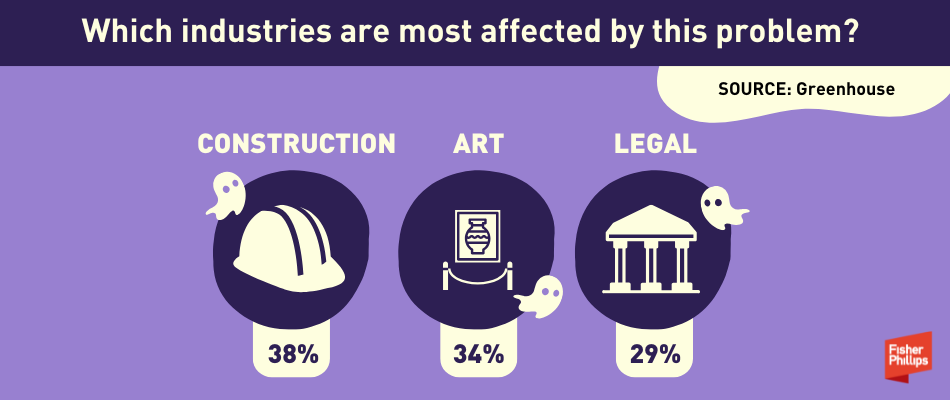California Lawmakers Want to Ban “Ghost” Job Postings: What Your Business Needs to Know About this Controversial Practice
Insights
4.01.25
A bill introduced in the California legislature this session aims to prevent employers from posting job notices for positions that don’t actually exist – a growing trend referred to as “ghost” job postings. If you’re not familiar with this practice, read on to learn about why employers are increasingly taking such actions and the steps California lawmakers are taking to try to put a stop to it.
What are “Ghost” Job Postings?
Ghost job postings are advertisements for roles employers have no immediate intention to fill. Candidates, often unaware, apply and even interview for these roles, investing significant time and resources only to find the positions never truly existed – or never learned that they have applied for and perhaps interviewed for a fake job.
What Would AB 1251 Prohibit?
The proposed bill, AB 1251, requires private employers to explicitly disclose in job advertisements whether the position advertised is an existing vacancy. Employers failing to provide this disclosure would be in violation of California’s unfair competition law under the Business and Professions Code. The California Privacy Protection Agency (CPPA) would oversee enforcement, possessing the authority to impose administrative fines and issue cease-and-desist orders against non-compliant employers.
Why Would Employers Ever Post Fake Jobs?
Employers post “ghost” jobs for several strategic reasons.
- Talent Pooling: Some businesses maintain job listings to continuously collect resumes, building a talent pipeline for potential future hiring.
- Scouting: Others use job postings to perform market research, assessing the competitiveness of salaries or the availability of talent.
- Legal Reasons: Certain companies may also post these listings to fulfill compliance requirements, such as proving they advertised positions externally before promoting internally or hiring candidates on work visas.
- Company Image: Additionally, some organizations use postings to portray a prosperous, expanding business to competitors, investors, and existing company personnel.
- Employee Morale: Others may hope that the prospect of new hires on the way would help encourage existing workers to falsely believe that their work loads would be eased in the near future.
Is This a Big Problem?
The prevalence of ghost job postings has become a significant issue in recent years. A 2024 survey from Resume Builder found that nearly 40% of responding companies posted a ghost job in the previous year, and three in 10 responding companies had a current active fake job listing. More recent studies show that anywhere between 18% and 36% of all current job openings are not genuine.
These ghost job postings lead to increased frustration, mistrust, and wasted time on the part of applicants – but those aren’t the only reasons that California lawmakers want to end the practice. Regulators and privacy advocates have concerns that ghost job postings lead to the unnecessary collection and storage of applicants’ personal data. And these fake job postings could also warp labor market metrics, misleading state officials into thinking the job market is more robust than it actually is.
Are There Specific Industries Where the Problem is More Prevalent?
According to hiring platform Greenhouse, the three industry sectors with the highest rate of ghost job postings are:
- Construction: 38%
- Art: 34%
- Legal: 29%
What's Next?
AB 1251 was introduced on February 21, and was sent to the Committee on Labor and Employment on March 25. Recent amendments to the bill clarified enforcement details and strengthened disclosure requirements, which signals serious legislative intent – in other words, don’t be surprised if this bill gains traction as the legislative session gains steam this summer.
One of the more surprising aspects of the bill is that it would task the CPPA with enforcement even though the proposed law would not be housed under the California Consumer Privacy Act (CCPA) statutory sections. Given that the agency already has much on its plate as it ramps up enforcement and issues new regulations and guidance, and two other agencies (the Civil Rights Department and the Division of Labor Standards Enforcement) already play a role in enforcing job posting laws, there seems a good chance this portion of the bill will be amended at some point down the road.
Looking far into the future, AB 1251 would need to pass both houses of the legislature and reach Governor Newsom by mid-September in order to become law. He would have until October 12 to sign or veto the legislation.
What Should You Do?
California businesses should closely follow AB 1251 due to its potential impact on recruitment practices and associated compliance requirements. What should you do to prepare for the potential for this bill to become law? Consider the following steps.
✅ Proactively review your hiring practices. Determine whether you want to ensure your job postings explicitly state whether they would fill existing vacancies.
✅ Conduct compliance audits of current recruitment practices, policies, and procedures.
✅ Train your human resources and recruitment teams on the importance of transparency in the hiring process.
Conclusion
We will continue to monitor developments and provide updates as warranted, so make sure you subscribe to Fisher Phillips’ Insight System to gather the most up-to-date information on AI and the workplace. Should you have any questions on the implications of this proposal and how it might impact your operations, contact your Fisher Phillips attorney, the author of this Insight, or any attorney in any of our California offices.
Related People
-
- Collin D. Cook
- Partner
-
- Benjamin M. Ebbink
- Partner
-
- Usama Kahf, CIPP/US
- Partner






